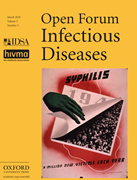An ongoing dialogue on HIV/AIDS, infectious diseases,
March 18th, 2018
Why with Extremely Resistant Infections, It’s Extremely Important to Consult ID
 Since the only procedures most of us Infectious Diseases doctors do with any regularity are biopsies of patient medical records, we have to justify our existence in other ways — such as collecting data on how our expertise improves patient outcomes.
Since the only procedures most of us Infectious Diseases doctors do with any regularity are biopsies of patient medical records, we have to justify our existence in other ways — such as collecting data on how our expertise improves patient outcomes.
There are a bunch of these papers published, with this one being the most widely cited (the title says it all):
Infectious Diseases Specialty Intervention Is Associated With Decreased Mortality and Lower Healthcare Costs
Here are a few more, hardly a comprehensive list:
- Staph aureus bacteremia (one of several) — some hospitals mandate ID consultation for this entity
- Infections related to solid organ transplantation
- Cryptococcal infection — as I’ve written before, who would try managing this tricky condition without ID input?
- Endocarditis
- Candidemia
Now, a paper just published in Open Forum Infectious Diseases looks at the effect of ID consultation on outcomes in patients hospitalized with multidrug-resistant organisms (MDROs).
The retrospective review spanned nearly 10 years of data and included over 4000 patients. The researchers found that ID consultation was associated with a significant reduction in all-cause mortality for drug-resistant S. aureus, Enterobacteriaceae, and polymicrobial MDRO infections.
For some of these infections, the effect was huge — a 50% decrease in deaths. Patients with resistant gram-negative infections also had a reduction in 30-day readmissions.
Studies like this are critically important to our specialty. They demonstrate the value of Infectious Diseases in ways that go far beyond simply counting “relative value units” (RVUs), a scoring system where we invariably come up short.
Finally, leave it to that bastion of common sense, Consumer Reports, to summarize the results perfectly:
Aside from the hyphen between “infectious-disease” in the subtitle, I couldn’t have said it better myself!



The title of your post left me wondering… Who WOULDN’T consult ID (assuming an ID consult is available) in cases of extremely resistant infections? Heck, just reading the meds used to treat cryptococcal infection (amphotericin B and 5-FC) made me think there is no way I would attempt to prescribe them *without* the input — not to mention hand-holding — of an ID doc.